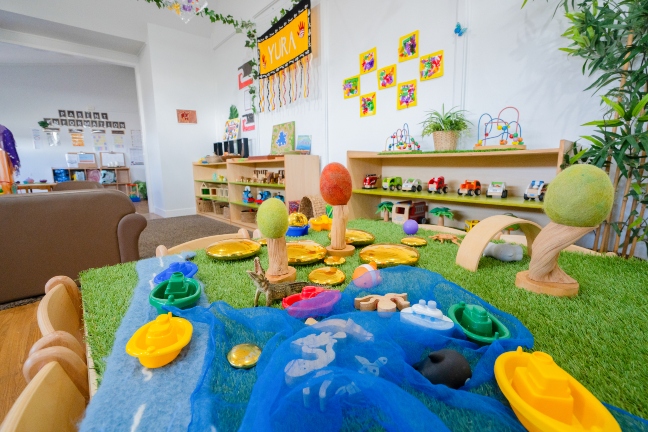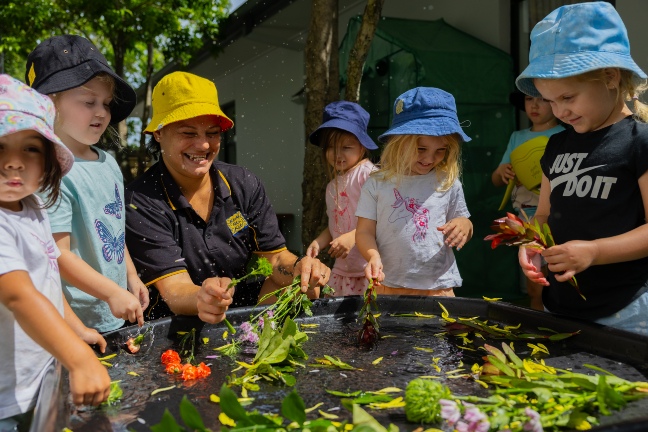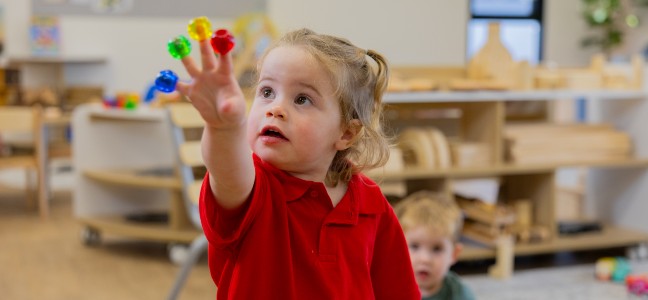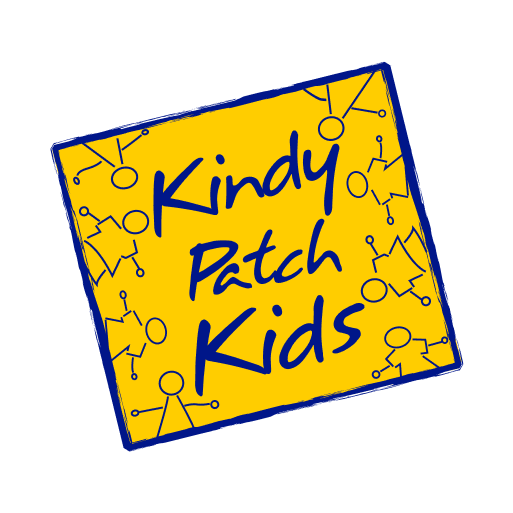Our learning programs
Our learning programs are underpinned by the principles, practices and outcomes of the Early Years Learning Framework and the G8 Practice Statements.
Our team provides programs to engage, excite and extend children, ensuring their enquiring minds and evolving skills and strengths are expanded through play-based experiences.
Our inclusive program recognises the unique existing knowledge, experience, abilities, interests and culture each child brings to our child care and early education centres, maximising the learning potential of all children. Our educators plan and implement a range of experiences across varied learning areas including literacy, mathematics, STEM, the arts and sustainability. Children have opportunities to become effective communicators, to strengthen their self-identity and wellbeing and be an active contributor to their world.

Our learning environments
We understand the importance of creating aesthetically inviting environments, designed to optimise learning opportunities for all children. The physical environment becomes a third teacher, guiding children’s play, rest and learning, and provides a critical foundation for children’s holistic development. When our educators plan and create play spaces for children, messages are communicated about the importance they place on children and their learning.
Children learn most effectively when they are entirely invested in their own learning. Our environments are purposefully planned to encompass a diverse range of areas, inviting children to initiate their own learning as they inquire, investigate and pursue their interests. An intentional combination of play spaces with open-ended resources and provocations that spark curiosity leads to imaginative, innovative and creative play. We ensure children are afforded sufficient time to engage in shared conversations as they build friendships, problem-solve, share in the joy and challenges of playing with others, and explore new ideas.
We maintain a strong commitment to creating an environment that supports children to feel safe and secure so they can fully participate and have complete access to our program. Educators work together with families and other professionals to support children with additional needs, catering for their individual learning requirements.

The Early Years Learning Framework (EYLF)
Guided by the Early Years Learning Framework (EYLF), our choice of resources reflects diversity in culture, ethnicities, languages, family structures, gender and developmental capabilities which builds an understanding, respect and value of individuality. The environment offers children multiple play spaces so they can be creative, dramatic, messy, constructive, active, imaginative, and relaxed.
Both the indoor and outdoor environments are designed to provide children with agency, promote curiosity and encourage active participation in play. In response to children’s needs to unwind and relax, we provide calm and quiet spaces to support sleep and rest requirements.
How we support children’s learning across every area
Experiencing a diverse program and embracing a wide variety of learning areas extends upon children’s interests and provides a breadth of experiences to open new avenues for children to discover. Local specialists are often invited to enrich our program, supporting children’s learning in specific areas through interactive demonstrations, or displays. Our experienced educators plan and implement programs to build children’s confidence as learners. They use intentional teaching strategies and critically reflect on their program and practice to ensure that they are providing a high-quality educational program to all children.
As educators interact with children, their oral language develops rapidly. Children listen and respond, with early vocalisations, developing these into complex conversations through opportunities to practice. Development of oral language is a key determinant of future literacy success and therefore our educators are trained to model language use, add new vocabulary, ask open-ended questions and provide language feedback during conversations to enhance language acquisition.
Regular daily interactions, including reading, storytelling and singing, promote enjoyment and a love of language while also developing phonological awareness and concepts of print. As children engage with drawing, painting and mark-making they are developing their emergent writing skills and beginning to recognise symbols convey meaning. Our literacy rich environments include writing implements, books, signs, labels and posters for children to recognise print has differing purposes and to encourage children to both interpret and construct various forms of print.
Mathematics concepts are developed from birth as children listen to mathematical language in everyday interactions and use a range of resources and materials to explore numerical concepts. Informal units of measurement, volume and capacity, patterns, sequencing and counting are often explored through sand and water play, loose parts play and construction. Books, songs, games and conversations offer further opportunities for children to learn about a range of number concepts.
Our program also incorporates authentic activities such as cooking. While cooking, children count, measure and gain awareness of temperature, volume and capacity and fractions as they learn life skills and create a meal for all to enjoy.
Our arts experiences offer children an expressive and creative outlet to communicate their own ideas in an aesthetic and enjoyable manner. Visual arts, music, dance, drama and media arts allow children to learn about each art form, engage in creative processes and utilise them as a tool for inquiry. Visual art offers children opportunities to learn about artists in addition to providing a platform to develop their own skills and techniques in art making through a range of mediums.
From an early age, children are innately responsive to music, whether it be a soft lullaby to soothe or tapping and beating to create melodies. Music is experienced through a combination of both spontaneous and planned experiences, providing children with opportunities to have freedom when making and responding to music and musical concepts such as pitch, beat, dynamics, tone and tempo.
The joy of music is often expressed through dance and movement, with children using their bodies both creatively and actively. Our educators encourage children to explore elements of dance to enhance children’s movement potential and promote dance as a medium for expression and communication. Drama occurs through experiences where children role-play based on both real and fictional scenes, offering another channel for children to be imaginative and to make sense of their world.
Children are eager to solve problems and therefore planning authentic STEM experiences as part of our program supports children to design, create, test, analyse and redesign. Using an inquiry-based model, children are encouraged to be curious about real world problems and explore a range of open-ended materials to problem solve. STEM encourages children to be imaginative and innovative in a collaborative environment with space to investigate a problem over a long time. This allows them opportunities to engage in sustained shared thinking.
Our program encompasses a comprehensive sustainability focus where we actively educate children on sustainability issues on a local, national and global level. Learning about and in local environments develops children’s awareness, respect and value for community and places of significance. The lands on which our centre stands are recognised as belonging to Traditional Owners and Custodians. The significance of this relationship is shared with children through acknowledgements, curriculum experiences and relationships with local Aboriginal and Torres Strait Islander peoples.
As children understand, care and take action for the environment, they engage in everyday practices including recycling and reusing materials, as well as water and energy conservation. We recognise children are members of families and communities who, together, can influence positive actions and attitudes in others for the benefit of local and global environments.
Our experienced educators implement a high-quality early childhood education and care program to ensure all children feel a sense of belonging, enjoy being active in their own learning and become confident, creative and successful learners.

Start your journey with us
Ready to start your early learning journey? Find a centre near you to see everything we have to offer for your child’s growth and development.
